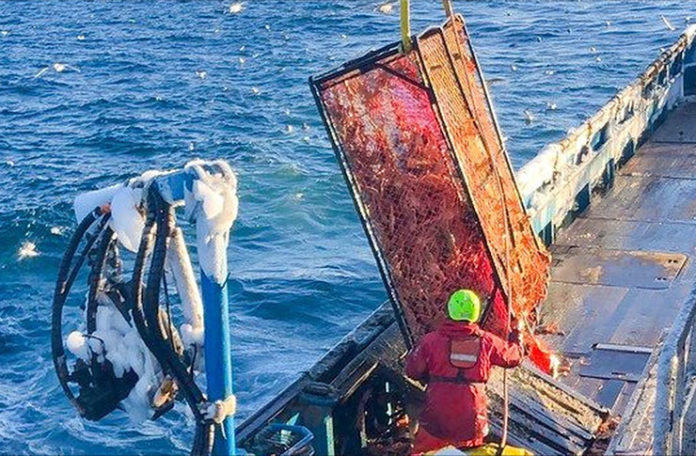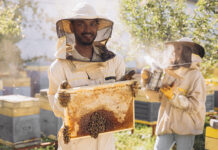
The Alaska Department of Fish and Game set the 2022 snow crab harvest at the lowest level in more than 40 years, to protect populations that appear to have crashed during a period of higher temperatures in the Bering Sea.
The 2021-22 catch limit of 5.6 million pounds, announced, is now down 88% from the previous season.
The 2021 fall harvest of Bristol Bay red king crab, another important source of revenue for that fleet, was cancelled for this year because of too few females. The combined impacts of the closure and snow crab cutbacks are a big financial hit to crabbers who in past years have grossed more than $200 million from the two harvests.
“I implore you to do whatever is necessary to keep the crab fisheries sustainable,” said Jenny Gore Dwyer, whose family owns three North Pacific crab boats, in testimony before the council. “First and foremost we are a business based on fishing crabs in the Bering Sea … But for us, it’s not just a business, it’s a way of life.”
Scientists who study the snow crab are scrambling to understand what happened to them in the aftermath of dire summer survey results that included a more than 99% drop in immature females compared to those found three years earlier, as well as substantial drops in mature males and females.
The changes in the Bering Sea include dramatic declines in winter ice cover in 2018 and 2019, which resulted in the reduced size of a cold pool on the bottom favoured by young crabs.
Formed by a landmark 1976 federal law that extended U.S. control over the 200-mile fishery zone off the nation’s coasts, the council — composed of state, industry and federal officials — develops harvest plans in the Bering Sea and the Gulf of Alaska.
In a Wednesday vote, the council approved a maximum allowable snow crab harvest of 12.4 million pounds for 2021-22.
The state of Alaska, which sets the final quota, opted for a considerably lower 5.6 million pounds. Also on Friday, the state set a quota of 1.10 million pounds for Bering Sea bairdi crab, down 53% from the previous season.
The crab and fish harvests in the Bering Sea collectively rank as the most valuable fisheries in North America, and the federal council, when it resumes meeting, is expected to consider additional restrictions in some other harvests because of the low number of snow and king crab.
Source: The Bakersfield Californian










